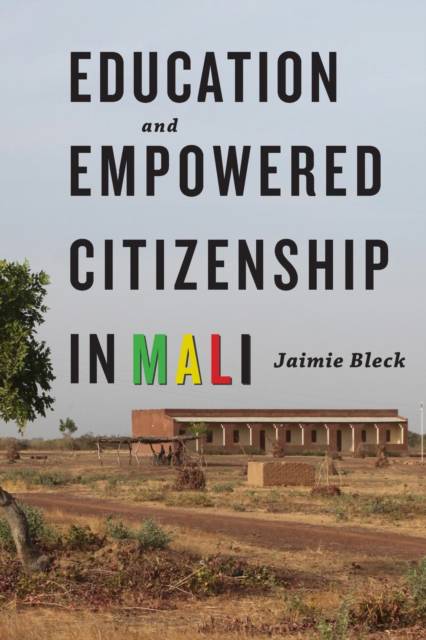
- Afhalen na 1 uur in een winkel met voorraad
- Gratis thuislevering in België vanaf € 30
- Ruim aanbod met 7 miljoen producten
- Afhalen na 1 uur in een winkel met voorraad
- Gratis thuislevering in België vanaf € 30
- Ruim aanbod met 7 miljoen producten
Omschrijving
Explores the connections between access to education and political engagement in Mali.
Primary school enrollment has nearly tripled in Mali since 1991, when the country made its first transition to multiparty democracy. Jaimie Bleck explores the effect of this expanded access to education by analyzing the relationship between parents' and students' respective experiences with schooling and their current participation in politics.
In a nation characterized both by the declining quality of public education and by a growing number of accredited private providers, does education contribute substantially to the political knowledge and participation of its citizens? Are all educational institutions (public and private, Islamic and secular) equally capable of shaping democratic citizens?
Education and Empowered Citizenship in Mali is informed by Bleck's original survey of one thousand citizens, which she conducted in Mali before the 2012 coup d'état, along with exit polls and interviews with parents, students, and educators. Her results demonstrate conclusively that education of any type plays an important role in empowering citizens as democratic agents. Simply put, students know more about politics than peers who have not attended school. Education also appears to bolster participation of parents. Bleck finds that parents who send their children to public school are more likely to engage in electoral politics than other Malian citizens. Furthermore, Bleck demonstrates that increasing levels of education are associated with increases in more engaged forms of political participation, including campaigning, willingness to run for office, and contacting government officials.
Specificaties
Betrokkenen
- Auteur(s):
- Uitgeverij:
Inhoud
- Aantal bladzijden:
- 232
- Taal:
- Engels
Eigenschappen
- Productcode (EAN):
- 9781421417813
- Verschijningsdatum:
- 1/10/2015
- Uitvoering:
- Paperback
- Formaat:
- Trade paperback (VS)
- Afmetingen:
- 150 mm x 229 mm
- Gewicht:
- 385 g

Alleen bij Standaard Boekhandel
Beoordelingen
We publiceren alleen reviews die voldoen aan de voorwaarden voor reviews. Bekijk onze voorwaarden voor reviews.











